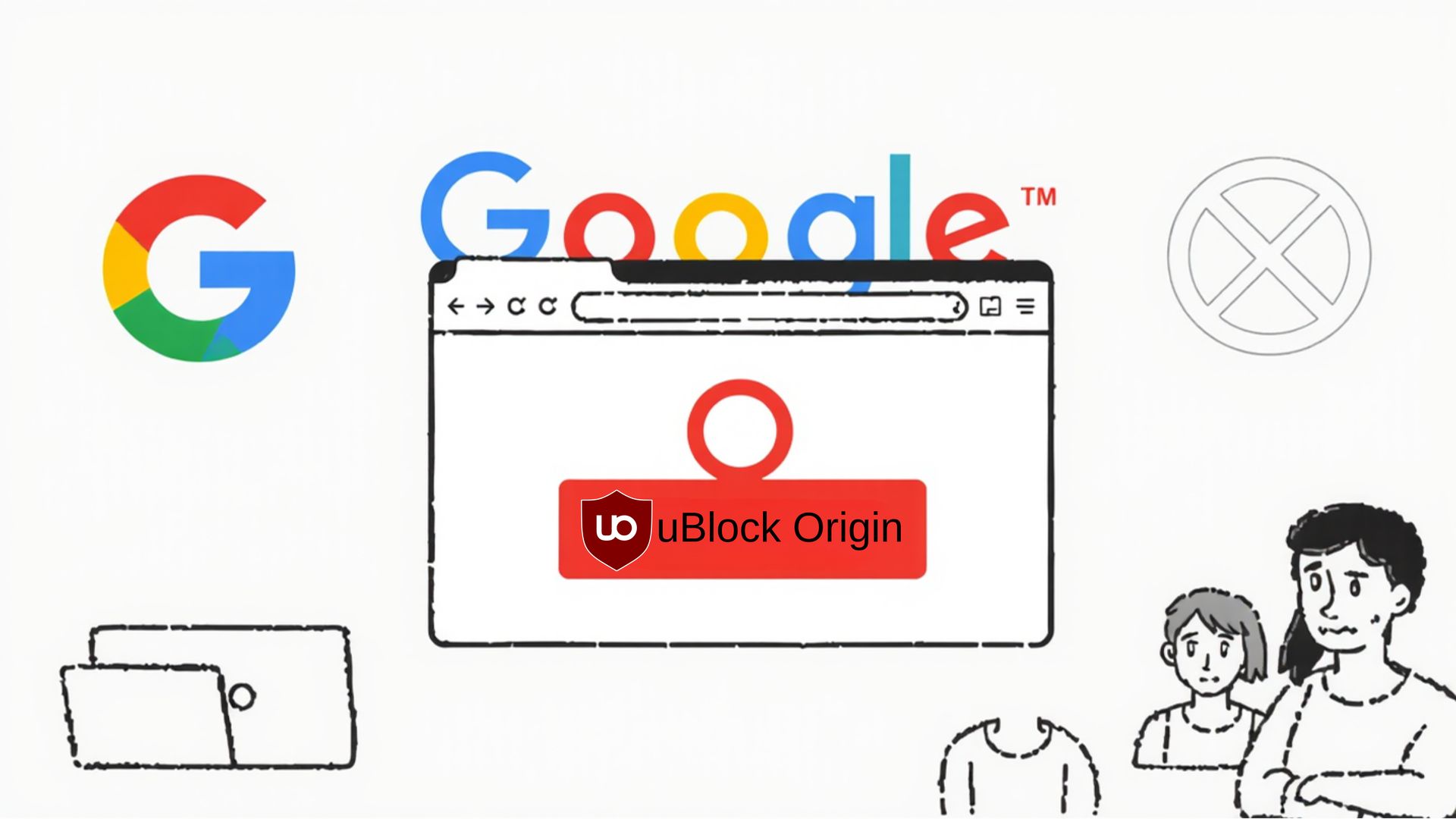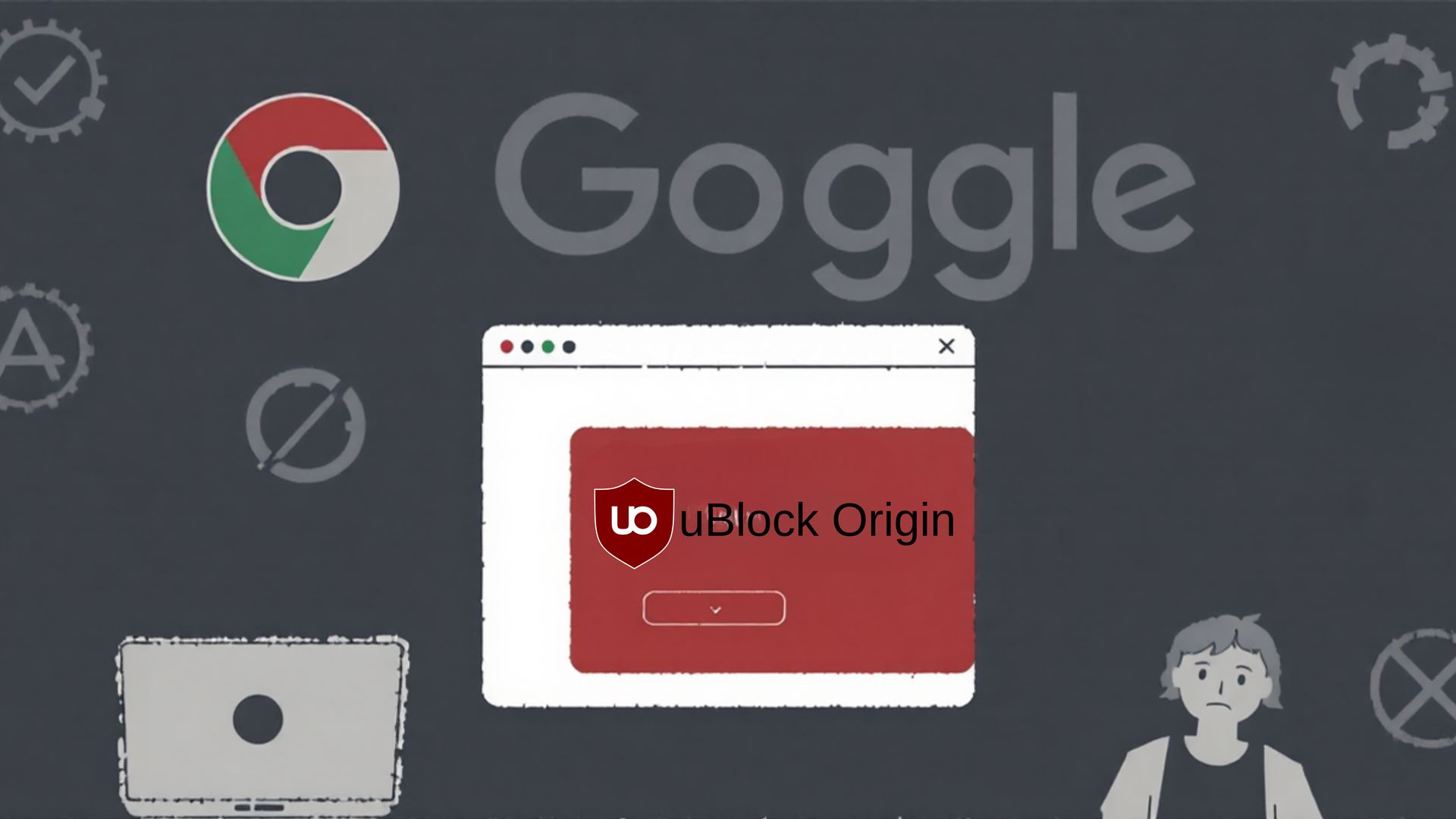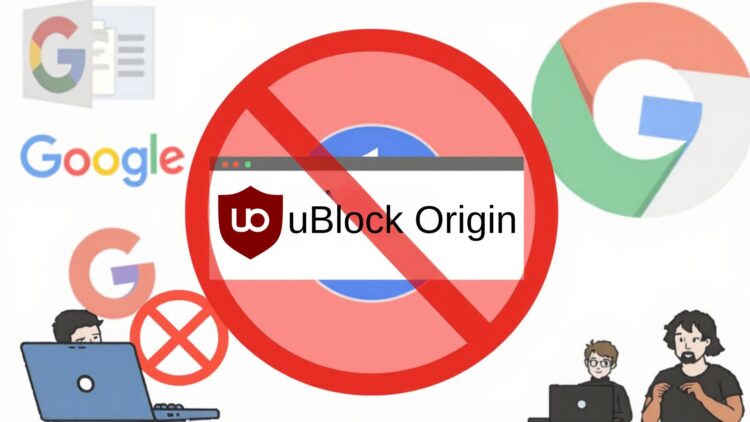This is a major turning point for all of us using ad-blocking extensions such as uBlock Origin, as this is the first case whereby Google removes such an addon from its own Chrome Web Store. Google is increasingly accelerating its change from V2 Manifest to V3 Manifest after years of holding back, which means a bumpy journey for ad blockers.
uBlock Origin is now being purged from the Chrome Web Store due to its non-compliance with Chrome’s new “best practices.” If you cling to it, then your time will tick. Eventually, your ad-blocker will be less powerful once Google’s in place, or you’ll find yourself switching browsers, none of which serve your interests.
Why is uBlock Origin disappearing from Chrome?
The most important part of this story is that we are being forced to abide by the new Google Manifest V3 standard, which specifies how extensions like uBlock Origin can handle web data. According to them, they want to allow extensions to improve ad blocking and tracking script blocking partly because of better security with Manifest V3.
Those days when uBlock Origin’s advanced ad-blocking capability was a major feature for Chrome users, those days are numbered for years. uBlock Origin has already disappeared from the Chrome Web Store for some Chrome users in some regions, where Google says that it was removed for violating new standards.
The shift has only recently picked up serious momentum, even though Manifest V3 was announced in 2018. With Google leaning so hard into doing this, it seems the only option for anyone else feeling the urge to block ads on Chrome has run out.

What does Manifest V3 mean for ad-blockers?
Unlike Manifest V2, Manifest V3 extensions can access less browser and web data. Ad blockers face a critical problem: they need deep access to web data to block ads and prevent tracking. Manifest V3 clauses, which reduce functionality, leave ad-blocking extensions, like uBlock Origin, without a way to function and will eventually be removed from Chrome.
A Manifest V3 version, built off of uBlock Origin Lite, the original still exists and is more lacking in potency than what used to exist. The limitations will probably be something users will eventually find frustrating, especially if they are used to uBlock Origin’s high level of control.
While this is all good, the aim is, according to Google, to be better for user privacy and security. However, the effect on ad-blockers appears to dampen down ad-blocking performance on Chrome, which might, incidentally, help Google’s ad revenue.
What’s next for Chrome users?
If you have uBlock Origin installed, it will still work for now, and Chrome power users have a reprieve until June 2025, at the very least. The extension is allowed to run temporarily using an enterprise policy (ExtensionManifestV2Availability). After that, it’s game over unless you’re okay with uBlock Origin Lite or some other ad blocker built on Manifest V3.
But if you’re not fond of these watered-down versions, there are alternatives. Many have pledged to support the usage of Manifest V2 for as long as possible. However, some third-party Chromium-based browsers, such as Opera and Vivaldi, will eventually have to handle the same technical roadblock.
Mozilla Firefox is the best option if you don’t want to compromise on ad-blocking. The uBlock Origin developers noted that Firefox will continue to support Manifest V2, and we’ll continue to have the best ad-blocking experience available on Firefox for now.

Alternatives to Chrome for ad-blocking
While Chrome may have lost the ground it once held in enabling ad blocking, Firefox has yet to cower in the face of Manifest V2’s opposition. If ad blocking is something you must use your browser for, it is probably time for a switch. Firefox is widely considered the best option for its robust ad-blocking features, which remain unharmed by Google’s shift.
If you want to stick with a Chromium-based browser and are okay with a reprieve, options like Opera and Vivaldi may work for you. Although these browsers aren’t giving up on Manifest V2 immediately, they may lose the ability to do so.
How to keep using uBlock Origin on Chrome despite the purge
Although Google is removing uBlock Origin from the Chrome Web Store, you can still get your block on with Chrome by manually downloading and installing the extension from GitHub. This encompasses downloading the extension to Chrome yourself and then loading it. Here’s a step-by-step guide to keep your ad-blocking powers intact:
How to use uBlock Origin on Chrome
If you prefer sticking with uBlock Origin, here’s how you can install and manage it manually via GitHub:
- Download and unzip the file: Head over to uBlock Origin’s GitHub page and download the latest release. Look for a file named
ublock0.chromium.zip. Once downloaded, unzip the file to a folder on your computer. - Rename the directory: After unzipping, rename the unzipped folder to unblock. This step is important for manually managing updates. When a new version is available, you can simply replace the content of this folder to keep your settings intact.
- Open Chrome and enable Developer mode: Go to Chrome and open the Extensions page by typing chrome://extensions/ into your address bar. Toggling the switch at the top of the page will enable “Developer mode.”
- Load the unpacked extension: Once Developer mode is on, click the “Load unpacked” button. A file selector dialog will pop up. Navigate to the uBlock folder you created in step 2 and click “Open.”
- You’re done: uBlock Origin will now be installed in your Chrome browser and will work as usual. Remember that you must manually update the extension when new releases come out.
Manually updating uBlock Origin
One thing to note: since you are installing uBlock Origin manually, Chrome won’t automatically update it for you. However, for some users, this can be an advantage:
- You control when to update: You can update at a time that suits you, giving you more control over the extension.
- Revert to an old version: If a new version doesn’t work well, you can easily reinstall an older version and continue using it without issue.
Managing the extension will allow you to continue using uBlock Origin’s powerful ad-blocking actions while Google sunsets the Chrome Web Store listing for uBlock Origin.
Image credit: Furkan Demirkaya/Gencraft AI





